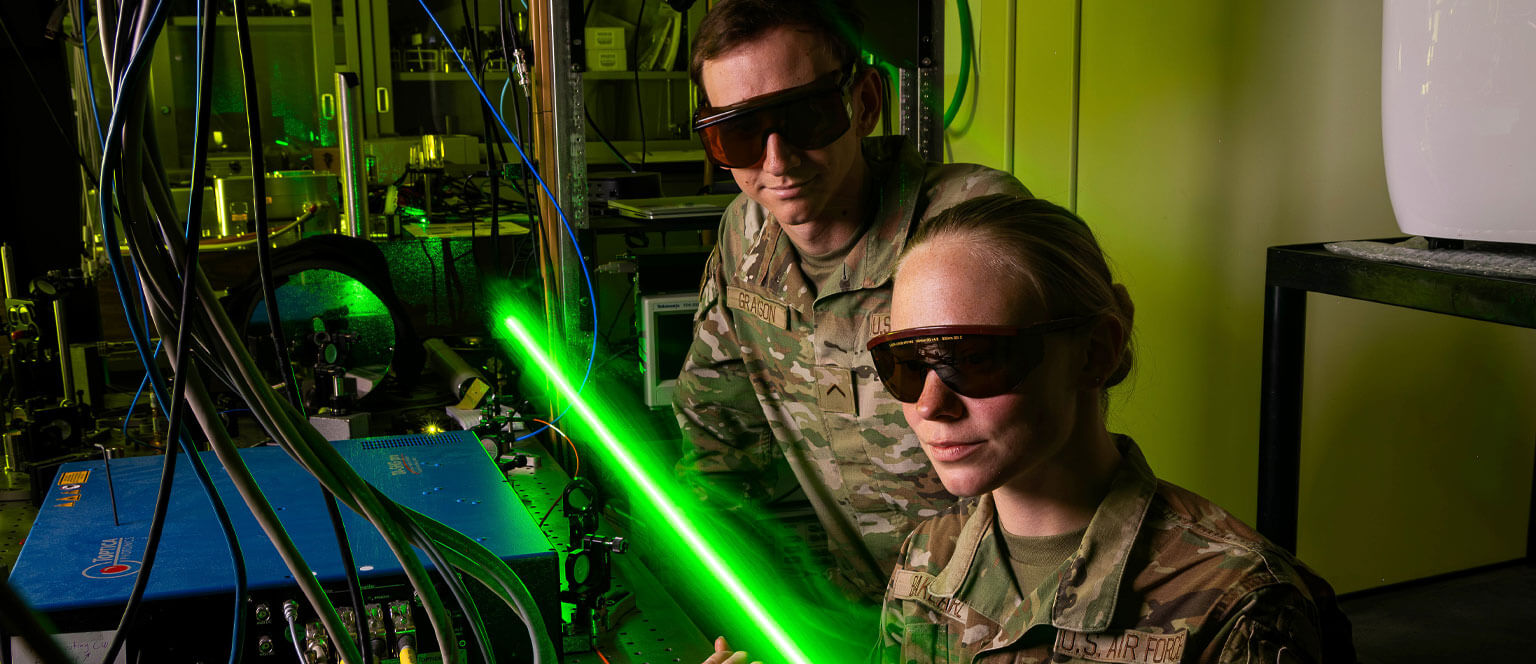Quantum Technologies (Minor)

Our world is at a critical moment in history; a new field of engineering is rapidly developing based on quantum information science. Quantum technology has already changed the world through quantum timing—the backbone of the Global Positioning System—and is set to revolutionize society at least three more times through quantum sensing, quantum networking, and quantum computing.
The Quantum Technologies minor develops cadets into quantum-proficient officers who understand the field’s core principles, leading quantum computing architectures and algorithms, field-tested quantum sensors, and advanced timing systems, without the need to study quantum physics for several years. Graduates with this minor will have the background needed to lead future quantum technology research, development, and acquisition programs, work comfortably on the boundary between quantum engineering and other engineering disciplines, and think strategically about how to employ quantum technologies. This minor meets the national mandate to build a quantum-proficient workforce and officer corps, ensuring the Air Force, Space Force, and Department of Defense maintain a technology lead over other nations in great power competition.
Course Requirements
The Quantum Technologies minor requires a minimum of 15 semester hours, 6 of which must be taken in residence and count exclusively toward this minor (they may not be counted toward another major or minor). Students must complete these 5 courses with a grade of “C” or better. This is an interdisciplinary minor. No more than 3 courses for the minor can be from any one department.
To achieve the core learning outcomes stated above, the following 4 courses are required:
Physics 215: General Physics II with Laboratory
Physics 242 Foundations of Quantum Technology
Computer Science 314 Quantum Computing
Physics 314 Applications of Quantum Technology
Two additional courses allow students to examine how quantum technologies relate to their major or other areas of study. These tracks, their associated learning objectives, and the corresponding courses are listed below. Some courses have non-core prerequisites.
| Track | Courses |
|---|---|
| Foundations of Quantum Mechanics Understand the historic, philosophic, and scientific foundations of quantum mechanics. |
|
| Chemistry & Materials Understand physical systems for which efficient quantum simulations have had/will have the largest impacts, including chemistry, atomic & molecular dynamics, materials science, spectroscopy, and protein interactions. |
Choose 2 of the following
|
| Cyber Understand those areas of the cyber domain for which quantum computing has had/will have the largest impacts, including cryptography and artificial intelligence. |
Take
and choose 1 of the following
|
| Engineering Understand those areas of engineering and mathematics which will accelerate the development of quantum technologies, and those areas which quantum technologies have had/will have the largest impacts including global positioning, secure communications, and materials development. |
Choose 2 of the following
|
| Strategic Impact Think more strategically about employing quantum technologies, their impacts on war, their effects on future warfare, and how to make national security decisions related to quantum technologies. |
|
| Ethical & Legal Considerations Consider the broad ethical and legal questions surrounding quantum technologies and their impact on societies. |
|
CONTACT US
Lieutenant Colonel James Scoville
Senior Military Faculty and Assistant Professor
james.scoville@afacademy.af.edu
(719) 333-2240